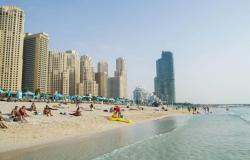
The Princess of Wales – Kate Middleton – the future Queen of England announced a few days ago that she was diagnosed with cancer. In Europe, the survival rate for some cancers is around 80%. In the UK, most diagnosed patients live for over a decade after being diagnosed. But what is it like to be diagnosed with cancer on the other side of Europe? Despite prevention programs and calls for testing, Romania remains the country with the highest cancer mortality in the EU. Annually, in Romania, 20,000 avoidable deaths are registered due to cancer, according to one of the patient associations. In a telephone intervention on the show “Romania in Direct” on Europa FM – with Cătălin Striblea – Silvia Coman – oncology patient navigator, doctor and patient diagnosed with cancer – talks about prevention, but also about the need for greater involvement from the state , as Romania lacks reference centers and expertise on rare types of cancer.
Silvia Coman: “Vwe are blinded by the involvement of the state, by secondary prevention, by screening programs that ensure an early diagnosis, but these programs do not really exist in our country”
Cătălin Striblea: I don’t know if you got to hear the testimonies of many people.
Silvia Coman: “I heard the last part and I’m going to take it, because it was also the first on my list. Prevention. We must know that many things also belong to us. We are talking about primary prevention, combating some risk factors. We know that smoking, drinking alcohol, obesity, sun exposure increase the risk of cancer, but we still do these things. Summer is coming now and we will see children kept on the beach from morning till night. We know that solar radiation can alter cellular DNA for up to 18 years, so the worst damage is now done. The genetic factor, indeed, we cannot influence, but it is these methods that belong to us. On the other hand, we are talking about the involvement of the state, about secondary prevention, about screening programs that ensure an early diagnosis, but these programs do not really exist in our country”.
Cătălin Striblea: This is something that everyone complains about. Let me read you a message. Says Maria, on Facebook: “They talk about prevention, but nothing is done to help us do that. A mammogram costs 350 lei, and the free programs, especially for people over 50 years old, do not work due to lack of funds. And look like this, you wait and wait to take a test because not everyone has money”. He also tells us an ironic fact. She writes from Timișoara, where a “big hospital advertises for breast cancer prevention, but for almost a month I have been calling and there are no funds”.
Silvia Coman: “Yes, it is a universal situation. From what I have seen, in Iași there is a program – at the IRO (no- Regional Institute of Oncology) – which is quite well implemented on breast neoplasm, on screening – at least that’s what they claim – but not otherwise. It’s the same problem everywhere. There was only one program for cervical cancer at one time, when I was also working as a doctor, but very poorly implemented and with extremely low addressability.”
Silvia Coman: “We have this problem with the lack of reference centers. This notion does not really exist in Romania. We have a lack of expertise on rare cancers”
Cătălin Striblea: Give us a hand and show us some steps for people who find themselves suddenly – and alone – in such a situation. You find out you have cancer. What are you doing?
Silvia Coman: “Yeah, you don’t know where you’re taking her, because you don’t have any information. It’s not like abroad, the moment you enter the system, all the steps are explained to you. You have a paper with a histopathological result, which says you have cancer, and you don’t know where to take it. I, in my work as a navigator, try to guide them, in general, being a doctor, I know exactly the steps to follow, depending on the pathology, and I refer them to the doctors I know in that pathology.
Because we have this problem with the lack of reference centers. This notion does not really exist in Romania. We have a lack of expertise in rare cancers, and generally that’s my main job. To find them the best solution for the moment. If it is in Romania, and of course I prefer to look for it in the country, I find it in the country. If it’s a cancer where we don’t have much experience in our country… I’m looking for a reference center outside”.
Cătălin Striblea: This is work that you do because you chose this matter. Shouldn’t it work as a matter of national agenda? When this happens to you – one of the most painful things in a person’s life – shouldn’t you be in the hospital where you got this result…?
Silvia Coman: “Yes, we should. From what I have seen abroad there is a nurse. Each oncology patient has a nurse who takes care of him, who is constantly an intermediary between the doctor and the patient and who is always with the patient, with everything that means information”.
Cătălin Striblea: We do not have this issue. Everyone is on their own.
Silvia Coman: “Yes Yes”.
Silvia Coman: “In the province we have a big, big problem. Patients are still sent with a recommendation for chemotherapy as the first line of treatment, although melanoma is chemoresistant”
Cătălin Striblea: Let’s say that there are more navigators in the country – that is, people who provide guidance.
Silvia Coman: “There are quite a few”.
Cătălin Striblea: If it doesn’t reach you, what should a man do who wakes up with that ticket in his hand? That’s how it is in Romania. You are given the ticket. You find out… and what do you do?
Silvia Coman: “Normally, it goes to the territory oncologist – that’s the situation – because the oncologist is the case manager. But there are also few, and they are suffocated by bureaucracy. I would not blame primarily the doctor for what is happening in our system at the moment. Every forest has its droughts, unfortunately. There is a big problem in the province. I still see, for example, patients with the same diagnosis as mine, where there are a lot of innovative therapies that are not reimbursed in the country, and patients are still sent with a recommendation for chemotherapy as the first line of treatment, even though the melanoma is chemoresistant. In the province we have a big, big problem. Additional to university centers”.
Silvia Coman: I recommend the Government to pay more attention to patients’ requirements
Cătălin Striblea: If you were to leave here a single recommendation for the Government of Romania… to do what?
Silvia Coman: “To be more attentive to patients’ requirements. Patients who are often very well informed. And who know their problems very well and listen to us.”
Watch the entire show “Romania in Direct” here:
Photo source: Shutterstock
Also Read: Preliminary Survey. Răzvan Petri, from “Young people vote”: “They follow the trend of the whole society, which tends to vote anti-system, anti-Europe”
Tags: Silvia Coman doctor oncology patient navigator primarily blame doctor happening system talking involvement state
-




